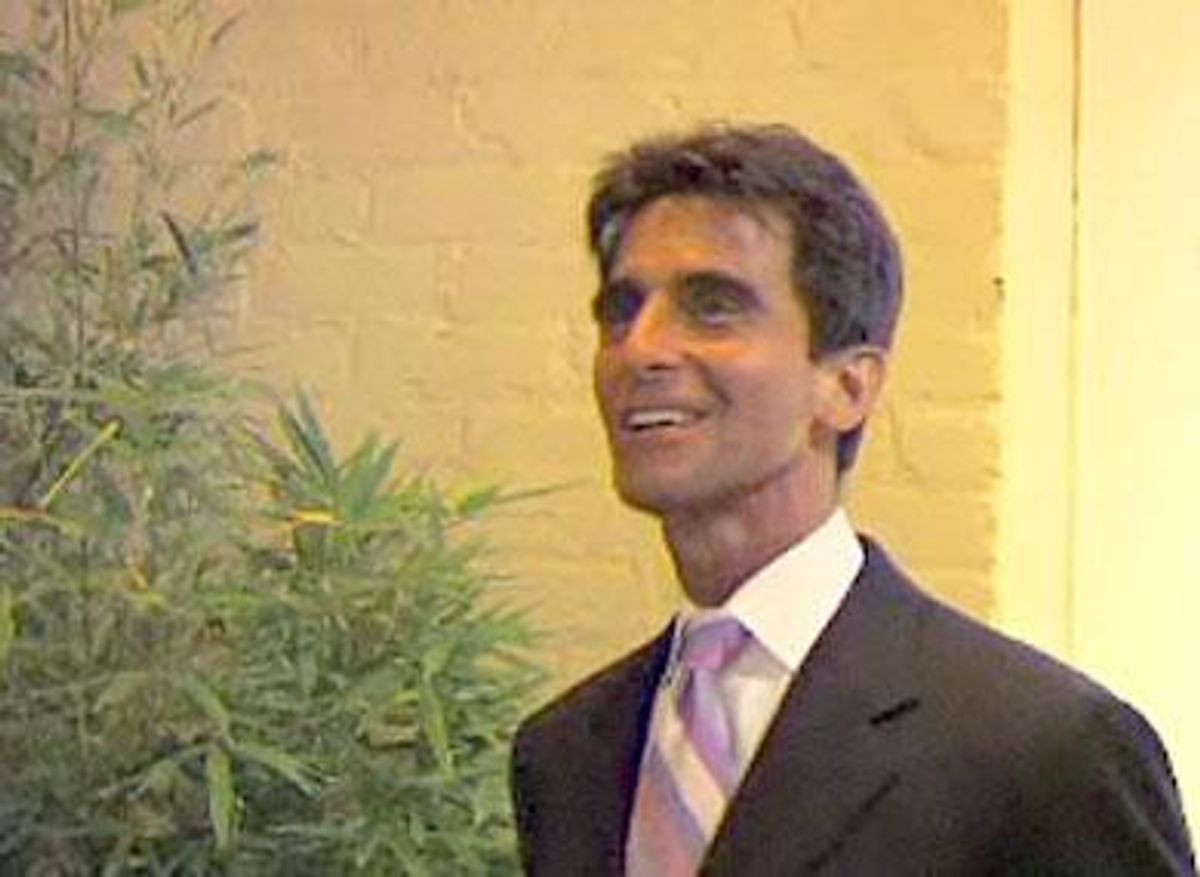Forty-four California state senators and assembly
members on Monday signed a friend-of-the-court
brief to support lawsuits seeking to overturn
Proposition 8, which voters passed last week,
banning same-sex marriage. The legislators argue that Prop.
8 "violates the equal protection guarantee" of the
California constitution, unfairly stripping away
fundamental rights.
The state
assembly and senate approved measures to recognize same-sex
marriage in 2005 and 2007, but Gov. Arnold Schwarzenegger
vetoed each bill. California senator-elect Mark Leno,
author of the "only marriage equality bills to
reach a governor's desk," and Sen. Carole Migden,
both of San Francisco, were among the
petitioners.
Advocate.com:What inspired you to sign the friend-of-the-court brief?Mark Leno: Well, of course, I'm very close to this
issue, having authored the only marriage equality
bills to reach a governor's desk. But I signed the
amicus brief specifically because I think there's
great merit to the case that there is a difference
between amending the constitution and revising the
constitution, and that's our core argument.
This underlines a
basic tenet of California's 150-plus-year-old
constitution that's in our equal protection clause.
And that if voters wish to revise our equal protection
clause, there is a difference process, which includes
not only a vote of the people, but preceding that a
two-thirds majority vote in both houses of the legislature.
The proponents of Prop. 8 did not follow the correct
process.
This issue is
much bigger than equal marriage rights. It goes to the core
of the importance of having a constitution and an equal
protection clause. If we start chipping away at our
equal protection clause so that some citizens are
treated differently and given more rights than other
citizens, our very constitutional democracy is at risk. This
is a very significant issue.
Carole Migden: We are committed to returning this
issue to the courts so that true equity may be
granted. California should require more than a
majority vote for constitutional amendments. Never before
has an initiative been used to abridge civil rights.
Since the passage of Prop. 8, rallies have popped
up across not only California but the nation. Did this
influence you in any way, or were you prepared to
sign the brief immediately?Leno: I was ready to sign this before [the rallies
began].
Migden: No. Though voters' beliefs are
important, I am not presupposing that voters
understood the legal complexities that Prop. 8
created. I do believe that both campaigns failed to
accurately communicate the legal injustice of Prop. 8.
This is an emotional issue for voters of all stripes
-- now we need to call on the independence of the
courts to weigh in.
Twice now, the "will of the people" has been proved
-- what do you say to them?Leno: The first time they voted on it, it was
declared unconstitutional. Now they've tried to change
the constitution to allow for this discrimination.
That's a very slippery slope. And there is
precedent. As recently as 1964, California voters approved a
ballot measure which gave landlords the right to
discriminate on the basis of race. The voters wanted
it. The supreme court threw it out. They said, "You
cannot do that. It undermines equal protection under the
clause." So, there's precedent, and there is an
argument to be made that no one's civil rights
should ever be put before the voters. It's
antithetic to a constitutional democracy.
Midgen: I hope the California supreme court has the
courage to renew its previous ruling, and I believe
that it will stand in the face of Prop. 8.


















































































